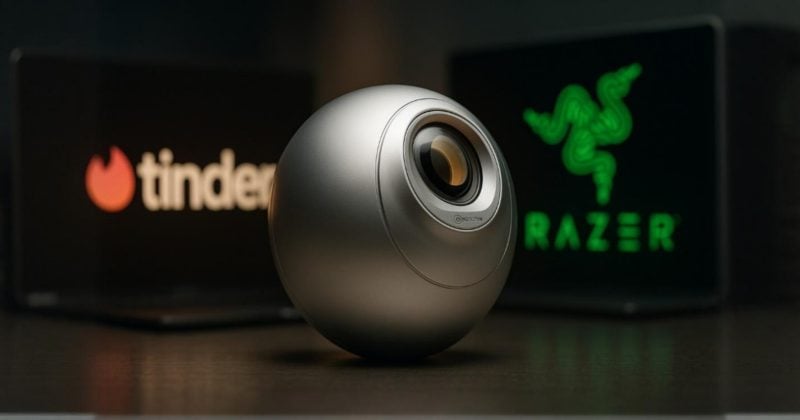
Photo: AI/ Crypto Briefing
Open AI CEO’s World makes US debut, announces partnerships with Visa, Stripe, and Tinder
The team also clarified Worldcoin's role and future utility.
World, formerly known as Worldcoin, the digital identity project co-founded by OpenAI CEO Sam Altman and Worldcoin CEO Alex Blania, is launching its services and products in the US, the team announced at their latest “At Last” event.
The move is part of World’s effort to build a global proof-of-humanity network in an era increasingly dominated by artificial intelligence. Blania said the US launch was prompted by a more encouraging political climate and, crucially, a more promising outlook for clear regulations.
“A lot of things influenced the decision. The political environment is certainly part of it, and kind of the outlook for regulatory clarity in the US was a big part of it,” said Blania in a statement, noting that the team has always taken a conservative approach to engaging with regulators, preferring to move slowly and carefully.
As part of the plan, the company will roll out 7,500 new Orbs by year-end, quadrupling its current global deployment. The rollout begins in six cities: Atlanta, Austin, Los Angeles, Miami, Nashville, and San Francisco.
World is also opening a new US manufacturing line in Texas to assemble Orbs for both domestic and global markets. The goal is to make human verification as accessible as possible—and, eventually, reach billions.
World also unveiled Orb Mini, a portable, early-stage version of its flagship verification device, which will begin shipping in 2026.
Orb Minis will allow individuals to carry verification tools in their pocket, potentially enabling a gig-economy-style model where verified users help others get verified, akin to Uber drivers onboarding riders.
Early partnerships in gaming, dating, and social networking
World’s US debut comes alongside two major commercial partnerships aimed at embedding World ID, the project’s decentralized identity protocol, into real-world applications. The company said its early partnerships focused on key industries including gaming, dating, and social networking.
Gaming giant Razer and dating app powerhouse Tinder are among the first to adopt World ID to verify human users and combat the growing presence of AI bots.
Razer is integrating World ID across its ecosystem, and Orbs will soon be available at Razer retail stores, according to the World team. The company also teased an upcoming tournament series, dubbed League of Humans, designed as an online-only gaming event exclusive to verified humans.
Furthermore, World is exploring integrations with Razer camera hardware to bring enhanced human authentication into gaming environments.
In the dating space, Match Group, Tinder’s parent company, will begin piloting World ID integration in Japan later this year, targeting age and identity verification. The partnership is expected to expand to other Match-owned platforms, as well as into additional markets.
World App makeover: New partners, prediction markets, and a Visa card rollout
World announced a series of upgrades to its flagship World App, including integrations with Circle, Stripe, and Kalshi, alongside a forthcoming Visa card initiative.
Through a new partnership with Circle, World App users will soon be able to access USDC, enabling stablecoin-based transactions within the app. A separate collaboration with Stripe will enhance payment capabilities in future updates, streamlining fiat on- and off-ramps.
Users will also gain access to the Kalshi prediction marketplace, allowing them to participate in event-driven markets directly from the app.
The company also revealed plans to launch a World Visa card, beginning with merchant integrations and expanding to users at a later stage.
What’s next for Worldcoin?
Worldcoin, the network’s native token best known for its role as an onboarding incentive, is expected to become the economic backbone of the World protocol, according to the World team.
Worldcoin will function as the fee token for the World ecosystem. Applications that want to use World ID will pay fees in Worldcoin on the project’s custom blockchain, World Chain.
“World ID fees use WorldCoin on World Chain to make applications be successful. And then those who provide the underlying technology also become successful because those fees support the technology,” Adrian Ludwig, chief architect at Tools for Humanity, said at the event.
How much users or developers get paid, or whether value is burned, redistributed, or reallocated, will ultimately be up to the community.
“The protocol enforces those rules so that everybody that’s involved knows that they’re gonna be that way consistently and into the future. And the community decides, collectively over time, what that’s gonna look like,” Ludwig added
“They can make decisions about how fees accrete to the protocol itself to provide sustainability. Is that value that’s gonna flow back to the user… or is it going to be burned? Those are the types of questions that the community can establish into the future,” he noted.
